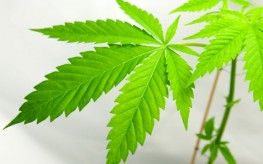
‘Twenty-two years ago, Debbie Wilson was struck down in the parking lot of a fast food restaurant by a driver in a pick-up truck. Upon impact, she was knocked to the ground head first, and then the driver inadvertently backed up over her.
This accident was the beginning of her 22-year journey into unbearable darkness, despair, and disability. She initially struggled with common traumatic brain injury symptoms including forgetfulness, migraines, nightmares, time distortion, depression, paranoia, anxiety, and balance problems.
Several years later, Debbie was diagnosed with epilepsy and suffered from seizures, PTSD, Alzheimer’s, chronic depression, anxiety, and Type 2 diabetes. A cocktail of pharmaceuticals proved ineffective while causing numerous deleterious side effects including damage to her intestines.

BYPASS THE CENSORS
Sign up to get unfiltered news delivered straight to your inbox.
You can unsubscribe any time. By subscribing you agree to our Terms of Use
A last-ditch effort to find some relief, Debbie was desperate enough to give cannabis a try in 2010. Within weeks of smoking cannabis, Debbie noticed a significant improvement in her symptoms. Yet, it wasn’t until Debbie began to orally ingest a non-psychoactive cannabis medicine or “NeuroEnhancer” (22% CBD 1% THC oil) along with a high-THC strain of cannabis for her epilepsy that she experienced the miraculous healing benefits of cannabis.
Debbie stated: “I know for a fact that I’m now accessing file drawers in my memory bank that were shut for more than 20 years. My story has not ended yet, I’ve been able to retire my seizure alert dog, my helmet, my diapers and over a dozen central nervous system depressants, pain relievers and antidepressants. So many areas of my body have been helped that it’s not even like I’m the same person.”
Scientific Studies Support Debbie’s Anecdotal Experience
Researchers from Tel Aviv University in Israel recently published a cannabis study in the Journal of Neuroscience Research. Their findings indicate that low doses of cannabinoids, in particular ultra-low-dose tetrahydrocannabinol (THC), exerts a protective effect against cognitive deficits from brain inflammation.
The goal of the Israeli researchers, led by Miriam Fishbein-Kaminietsky, PhD, was to discover if low-dose THC could protect the brain from cognitive deficits after lab-induced brain inflammation. The researchers decided to do an in vivo lab study with mice that they injected with “10 mg/kg of lipopolysccharide (LPS),” which is known to cause brain inflammation.
Additionally, the mice were injected with “0.002 mg/kg of THC either 48 hours before LPS treatment or 1-7 days after LPS treatment.” The rationale behind the protocol was to determine whether the timing of the THC dose could protect the mice brains from induced brain inflammation. Three weeks after the injections, the mice were tested.
Fishbein-Kaminietsky said of the study’s results, “An ultra-low dose of THC that lacks any psychotropic activity protects the brain from neuroinflammation-induced cognitive damage.”
The study clearly demonstrated that, although LPS causes brain inflammation, which results in chronic cognitive debilitation, the introduction of THC either before or after injection with LPS prevented inflammation-induced cognitive deficits. In other words, THC acted as both a preventive as well as a remedy against brain inflammation.
The study suggests that minuscule doses of THC can prevent and heal cognitive deficits resulting from brain inflammation and other neurodegenerative diseases like Alzheimer’s and Parkinson’s.
A prior study from Brazil reported that cannabidiol (CBD) “could help ward off neuronal cell death in the face of neurodegradation,” according to Medical Jane.
This is all good news for older patients who often fear the “high” associated with THC.’
Article by Paul Fassa – Natural Society


If these compounds prevent before and repair after, then these are neither drugs nor medicines. That is the hallmark of NUTRIENTS, 532 of them all found in perfect.form and ratio in Cannabiz. To date, after discovery.around 22 years ago, not one lab or doctor or agency is telling us what nutritive requirements the otherwise under supplied, mostly either dormant or disfunctional Endocannabinoid. System. Oddly, we also find the admitted 49 USDA claimed essential nutrients, yet we still disease and damage horribly them in our diets and they also work the entourage effect as all the other compounds in cannabiz, from the omega fats being precursors to our 7 endocannabinoids to D3 involved in gcMAF.and across.every.cell.and disease.uh, hello. Every one of her compounds behave as preventative to untold diseases. That, my friends, is exclusively how nutrients work. I can say this, because unlike 99% of so called.cannabiz experts, no one is bothering to read the actual research. I have now pored through well.over 32,500 research reports in the past 37 months and after about 4,000 I was unsettled, by 5,000 8 sat convinced and pulled out the dictionary. Nutrient: a compound the cell requires for hoemoostasis, which it either produces only in limited quantities or not at all, and r equines an outside source. Wrap your minds around this a moment. These are not drugs,; no toxic side.effects.or.contrindicafions, nor medicine, except.behaving medicinal to satisfy the effects of their deficiency or total.absence. people need to seriously start to read ALL the reports and they’re available at the NIH website PubMed..until you do, please.stop.pretending like you actually undertake anything about this plant. It is.misleading and shows a total.lack of a complete.perspective of the nature of this plant and her meaning. Put this ON YOUR PLATE.every day, seed, bud, leaf and watch diseases simply start to not be. Read damit, before you opine and drag everyone down the wrong road even further and we are way off course.